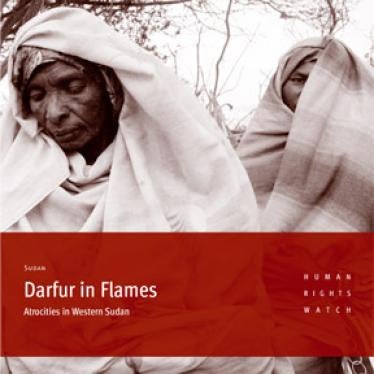The G8 nations gathering at Sea Island ended their summit Thursday with a first step toward stopping ethnic cleansing and crimes against humanity.
Unlike too many world leaders at too many world summits before them, who turned their backs on similar atrocities, the Sea Island G8 summit took a stand — this time, about the bloodshed in Sudan's western Darfur region.
But expressions of concern are only the beginning: Decisive follow-through action is urgently required to avert massive human suffering in Darfur, site of the world's greatest current humanitarian crisis.
The stakes are no longer in question. Top U.S. aid officials last week forecast as many as a million deaths in Darfur this summer, the tragic cost of a government-created famine. Unless the G8 leaders make good on their words immediately with intense international pressure that demands accountability and corrective action by Khartoum, helpless lives will remain imperilled and countless deaths will result.
This analysis is far from hype, exaggeration or fear-mongering. As Human Rights Watch has documented, Khartoum's current killing campaign in Darfur has a bloody precedent in the two decades of civil war in southern Sudan.
For the past 15 months, the crisis in Darfur has escalated as government-backed janjaweed militias and government of Sudan forces have executed a scorched-earth campaign throughout the region.
Thousands have been slain, tens of thousands raped and brutalized, 1.2 million displaced from their homes, and at least 120,000 have fled to neighbouring Chad as refugees.
Across Darfur, settlements by the hundreds lie in smoking ruin. Internally displaced Darfurians now live in fear in squalid, government-controlled camps patrolled by the janjaweed. Abuse and attacks continue: militia members rape women regularly; men who try to leave to gather food for their families are sometimes gunned down.
Relief supplies, including food, water and medicine, are often being obstructed by government design. Yet Khartoum's cruelty in Darfur has largely slipped below the West's radar screen in part because the Sudanese government has refused visas to many humanitarian workers and journalists.
Despite Khartoum's May 20 promise to improve access, nothing has changed. But crucial time has passed, and this week's weather has brought a deadly new threat, the summer rains and water-borne diseases. Roads into and within Darfur cross deep river beds that will flood quickly with runoff, hindering the flow of aid by ground, as officials in Khartoum well know.
Even the best-case scenario, say American aid experts — that is, immediate, unimpeded relief — will still see as many as 300,000 people perish from starvation and disease.
To move beyond mere recognition of Darfur's crisis, G8 members must intervene decisively and effectively. They must insist that the government of Sudan not only disarm the janjaweed, but demobilize and withdraw them. G8 leaders should escalate the commitment of resources their foreign ministers pledged last week in Geneva to bolster humanitarian relief and human-rights monitoring in Darfur, and put teeth behind their statement's demand for unhindered access without delay.
These steps, if taken within the next few days, may reduce Darfur's humanitarian disaster and save lives. Still, they would only treat the symptoms of Darfur's crisis, not its cause. As in Bosnia, as in Rwanda, the people of Darfur cry out for international relief because armed forces, at the instigation of those in power, have perpetrated crimes against humanity that have stripped their victims of the economic means of survival, their farms and livestock.
Unless those crimes by the government of Sudan are recognized, stopped, reversed and punished, the humanitarian crisis will continue in Darfur and likely erupt elsewhere. It remains within the G8's power to force Khartoum to end its reign of terror in Darfur and permit the displaced to return home in safety.
In this, the G8's Sea Island statement, which looks to the UN to lead the international effort to avert "a major disaster" in Darfur, comes up short. Each G8 country must demand that the Security Council, of which most of the G8 are members, move from a non-binding presidential statement on Darfur to a mandatory resolution under Chapter VII of the UN Charter that names the government of Sudan as the perpetrator, demands specific actions and spells out targeted sanctions if Khartoum fails to comply.
Putting Darfur on the Sea Island agenda offered a glimmer of hope. Should G8 leaders feel they've now done their part, both the lessons of the past and the people of Darfur will be lost.
Georgette Gagnon is the deputy director of Human Rights Watch's Africa division. Brenda Dinnick is a co-chair of the Toronto committee of Human Rights Watch. They met this week with Canadian leaders to spotlight the Darfur crisis.






